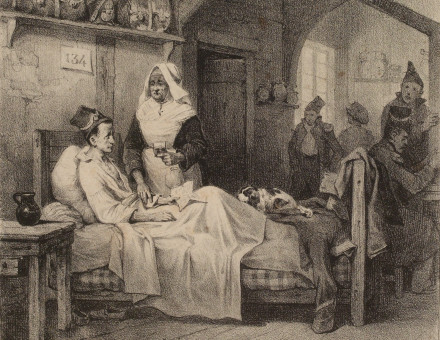The Foundations of Modern Surgery II: The Coming of Antisepsis
Henry Bashford looks back at the birth of one of modern medicine's pillars.
The coming of anaesthesia and the coming of antisepsis are the two major events upon which modern surgery is founded; but the significance of the first was much more speedily apparent. Everybody could understand the meaning of anaesthesia and, although its routine application to Surgery seems so inexplicably to have been delayed, when it did come at last, it lacked nothing in the way of trumpets. But the cause and cure of illness had always been the concern of a relatively small minority, and the idea that infectious diseases and putrefaction were due to the activities of living organisms was not only novel but had to contend with firmly established theories. Even when it had apparently been proved, the ubiquity of these organisms and the exactness of the precautions that had to be taken were not easily comprehended by physicians and surgeons; and failures of individual craftsmanship led to doubts about the general principle. Both discoveries had in common, however, a long and varied ancestry.





